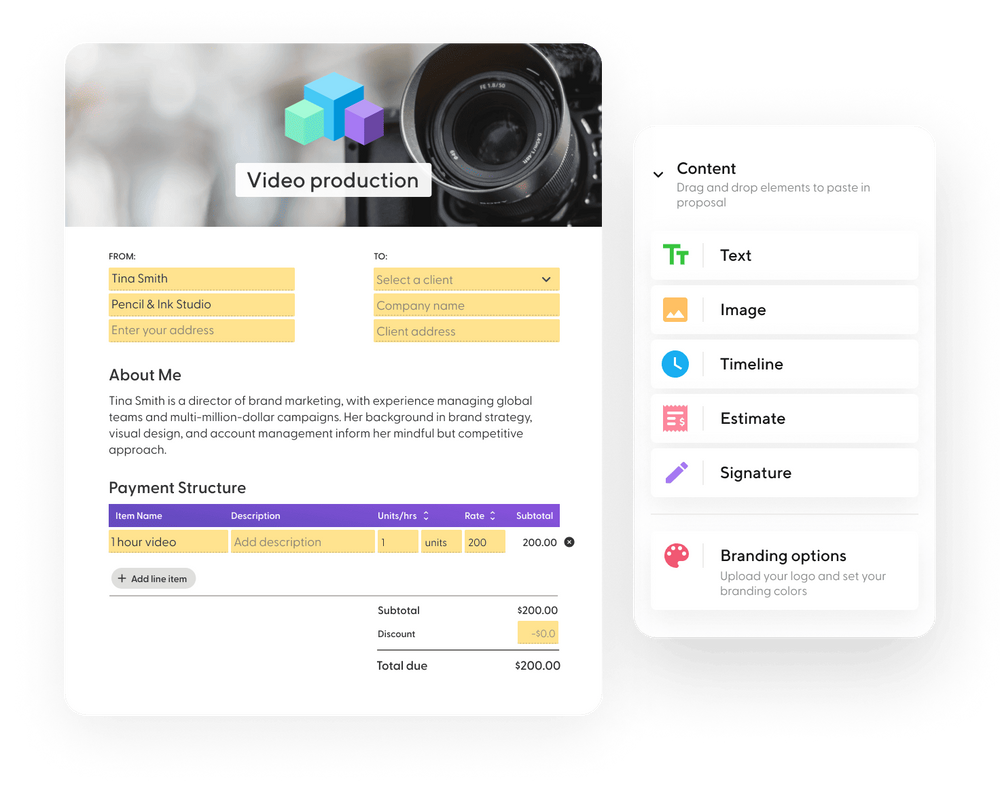You might not think of it this way, but as a freelancer, you’re running a small business. You might also have dreams of expanding those freelance services into a more traditional business too by outsourcing work to employees or expanding the menu of services.
While starting your business, it’s easy to get caught up in the day-to-day chaos and lose track of essential aspects of business operations. Take a breath and try using these tips for getting a handle on your business.
Create a Written Business Plan
The idea of written business plans sounds intimidating for anyone without an MBA, but don’t panic. It doesn’t have to be a formal business plan. The more details you can write down, the better, though.
Describe your products and services. Articulate what makes your business idea different from competitors. Write down price points, including cost breakdowns and profit analyses.
Include a plan for helping the business grow too. Detail how you’ll market the company, including social media, content marketing, or other strategies. Add a list of strategies to use for finding new revenue when business is slow.
Choose a Project Management Software
The easiest way to manage any freelance project (or several) is to keep all your tasks in one place, avoiding jumping around from app to app. Bring clients and team members together on the same project management system so everyone is on the same page for completing to-dos, tracking time spent, and communicating with one another. Streamlining operating procedures and communications become increasingly important as you sign on additional clients, track budgets and juggle multiple projects at once.
Manage Your To-Do List
Knowing what is on your plate at any given time is necessary for keeping project details from falling through the cracks. No one wants to work with the freelancer who misses deadlines or overlooks details. Write down each and every task associated with a project and regularly review upcoming deadlines each day, week, and month to stay ahead on work that needs completing. Regularly check in and update clients so they feel cared for.
Plan Each Day Wisely
Time is money when you’re running a business. Every minute, you could be finding ways to build the business and boost revenue. That means wasting your time figuring out what to do next is costly.
That’s why every day should begin with a plan, using that all-important to-do list as a guide. Don’t just schedule your planned meetings. Schedule time each day for various work activities. Allot certain time to specific production work like clients’ projects. Set aside other time blocks for business development.
This way, you’re never sitting there wondering what to do next. Plus, planning your schedule in advance makes it easier to make sure no tasks get left behind or lost in the fray.
Track Time Spent
Keeping an accurate record of the time you’ve spent on freelance work is crucial for managing each project. It’s important to understand what tasks are taking the longest in order to look for areas of improvement and it’s necessary for budgeting regardless of whether you charge hourly or per project.
Time tracking will also help you better allocate time, resources, and budget when defining the scope of work for future projects. It is easy for time to get away from you while working, so select a project management tool with clock-in and clock-out capabilities or log the hours you spend each day working on specific project tasks. It may seem tedious but will help significantly with project management and overall business management.
Have Standardized Documents in Place
Some company owners don’t think through their basic business documents until they need them. They spend all their time courting new clients, for example, but when one reaches that buying stage, they have to pause and start working with their attorney to develop a contract. It’s easy for clients to lose momentum or drop out of the pipeline during those long pauses.
Instead, draw up your key documents now, before they’re necessary. This includes client contracts, employee contracts, contractor agreements, non-disclosure agreements, and anything else that may be needed. When new clients come along or you need to hire new employees or contractors, you can hop on the opportunity without losing momentum.
Hire Your Own Freelancers
If you are at the place in your freelance business where it is difficult to efficiently complete all assigned tasks in a timely manner, it may be time to hire a freelancer (or a few) to assist with certain tasks or work with you full-time depending on how much is on your plate.
As you continue to sign more clients and take on more work, start setting some money aside to budget for freelancers. This will allow you to hire someone when you need help with your workload, especially if freelance projects come with a lot of moving parts to track because missing even one detail can lead to losing a client.
Manage Your Team Wisely
When you delegate project tasks to those freelancers you’ve added to your team, it is important to keep up with what everyone is working on at any given time. Use a project management system to stay up-to-date with what your team members are doing to help you continue assessing how everyone’s time can be used most efficiently.
Stay on Top of Your Budget
Depending on project scope, you may be responsible for tracking a client’s budget and how much of it is being allocated toward different software tools, advertising, etc. On top of that, you have your own internal budget to manage business expenses, especially if you are working with other paid freelancers.
Staying on top of your cash flow, both on the client side and internal side, is a top priority - you may lose clients if you overspend their money, and freelancers will stop working with you if you are unable to pay them for their work in a timely manner. Avoid financial error with the help of project management software that includes a budget tracker and invoicing capabilities in order to streamline financial management.
Make sure to keep an eye on those details regularly too. Every month, quarter, and year set aside time for preparing and review each essential financial report. This includes an income statement, cash flow report, balance sheet, profit and loss statement, sales report, and so on.
By reviewing these metrics often, you’ll have a better understanding of the business’s strengths and weaknesses. You’ll be able to catch downturns early and find ways of turning them around. After all, you can’t fix problems you don’t know about.
Be Accessible
The best way to get future clients is to serve current clients well so they’ll come back for more and send future clients your way too. To impress them all, do fantastic work but don’t forget about customer service.
Being easy for clients to reach at all times is a key part of customer service. Give clients multiple ways to reach you, like online chats, emails, phone numbers, and so on. Respond to clients as quickly as possible but take the initiative to reach out to them often too with updates or check-ins so they know you’re actively engaged. This makes clients feel more attended-to so they’ll help you build a successful business.
Consult with Select Professionals
Small business owners often take the DIY approach often, doing their own bookkeeping, tax management, client management, and so on. While this can save money, there are limits.
For financial and legal matters, in particular, hire a professional for a consultation. For example, while starting the business, bring in a CPA. They can advise you on setting up various company accounts, what types of business insurance are necessary, what types of taxes to collect or reserve, and more.
Attorneys work well for this too. They can advise you about legal liabilities to prevent, whether your business is a mobile app or freelance design work. Consulting someone about matters like these can help you catch potential problems or risks early before they become long-term, expensive issues.
Managing Your Business Strategically
Operating a small business isn’t easy by any stretch of the imagination, but with a well-planned system in place, it can be smoother, more successful, and infinitely more rewarding. Start with the tips above and find your path.



